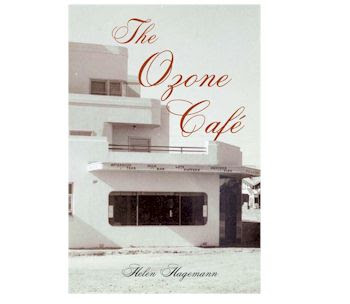The Subject Tonight is Love
The subject tonight is Love
And
for tomorrow night as well,
As a
matter of fact
I know
of no better topic
For
us to discuss
Until
we all
Die!
Like Passionate Lips
There are
So many positions of
Love:
Each curve on a branch,
the thousand different ways
Your eyes can embrace us,
The infinite shapes your
Mind can draw,
The spring
Orchestra of scents,
The currents of light combusting
Like passionate lips,
The revolution of Existence's skirt
Whose folds contain other worlds,
Your every sign that falls against
His inconceivable
Omnipresent
Body.
Why Abstain from Love?
Why
Abstain from love
When like the beautiful snow goose
Someday your soul
Will leave this summer
Camp?
Why
Abstain from happiness
When like a skilled lion
Your heart is
Nearing
And
Will someday see
The divine prey is
Always
Near!
Like Passionate Lips
There are
So many positions of
Love:
Each curve on a branch,
the thousand different ways
Your eyes can embrace us,
The infinite shapes your
Mind can draw,
The spring
Orchestra of scents,
The currents of light combusting
Like passionate lips,
The revolution of Existence's skirt
Whose folds contain other worlds,
Your every sign that falls against
His inconceivable
Omnipresent
Body.
Why Abstain from Love?
Why
Abstain from love
When like the beautiful snow goose
Someday your soul
Will leave this summer
Camp?
Why
Abstain from happiness
When like a skilled lion
Your heart is
Nearing
And
Will someday see
The divine prey is
Always
Near!
Hafez was born in Shiraz, Iran.
Despite his profound effect on Persian life and culture and his
enduring popularity and influence, few details of his life are known.
Accounts of his early life rely upon traditional anecdotes. Early tazkiras (biographical sketches) mentioning Hafez are generally considered unreliable.[4]
The preface of his Divān, in which his early life is discussed, was
written by an unknown contemporary of Hafez whose name may have been
Moḥammad Golandām.[5] Two of the most highly regarded modern editions of Hafez's Divān are compiled by Moḥammad Qazvini and Qāsem Ḡani (495 ghazals) and by Parviz Natil Khanlari (486 ghazals).[6][7]
Modern scholars generally agree that Hafez was born either in 1315 or 1317; following an account by Jami 1390 is considered the year in which he died.[5][8]
Hafez was supported by patronage from several successive local regimes:
Shah Abu Ishaq, who came to power while Hafez was in his teens; Timur at the end of his life; and even the strict ruler Shah Mubariz ud-Din Muhammad (Mubariz Muzaffar). Though his work flourished most under the twenty-seven year reign of Jalal ud-Din Shah Shuja (Shah Shuja),[9]
it is claimed Hāfez briefly fell out of favor with Shah Shuja for
mocking inferior poets (Shah Shuja wrote poetry himself and may have
taken the comments personally), forcing Hāfez to flee from Shiraz to Isfahan and Yazd, although no historical evidence of this is available.[9] His mausoleum, Hāfezieh, is located in the Musalla Gardens of Shiraz. Resource: Wikipedia
























